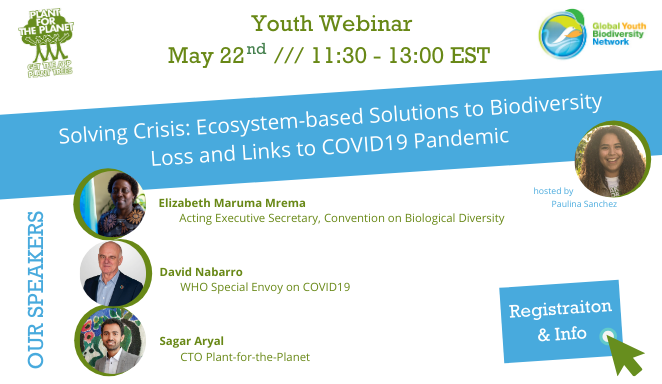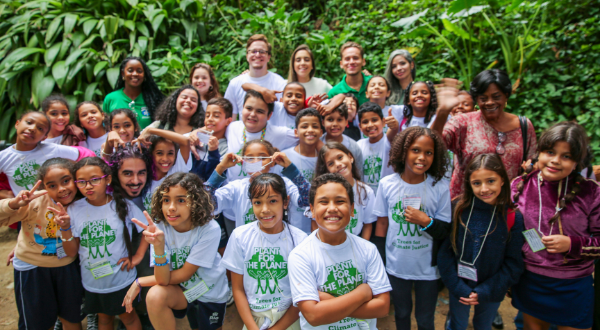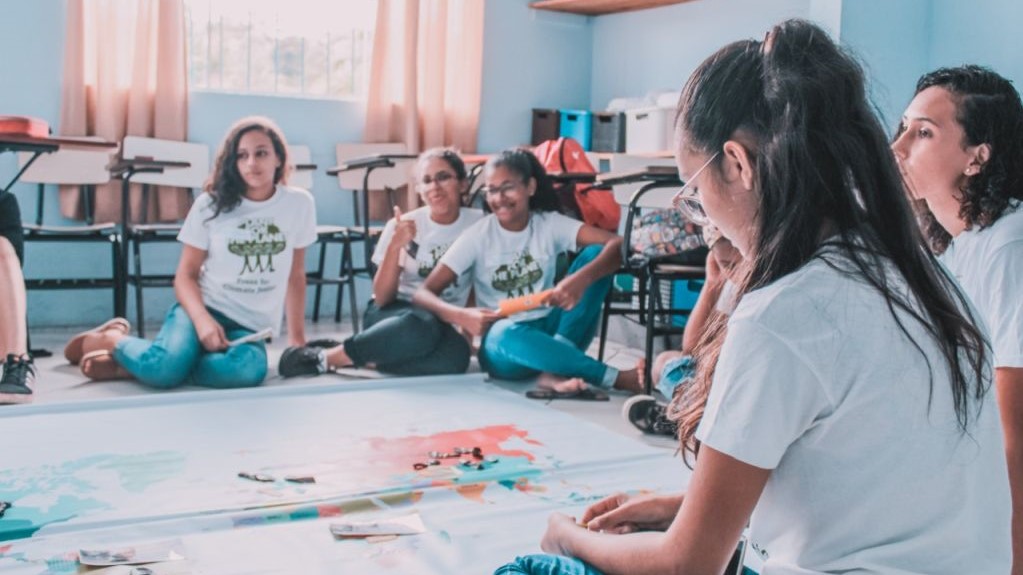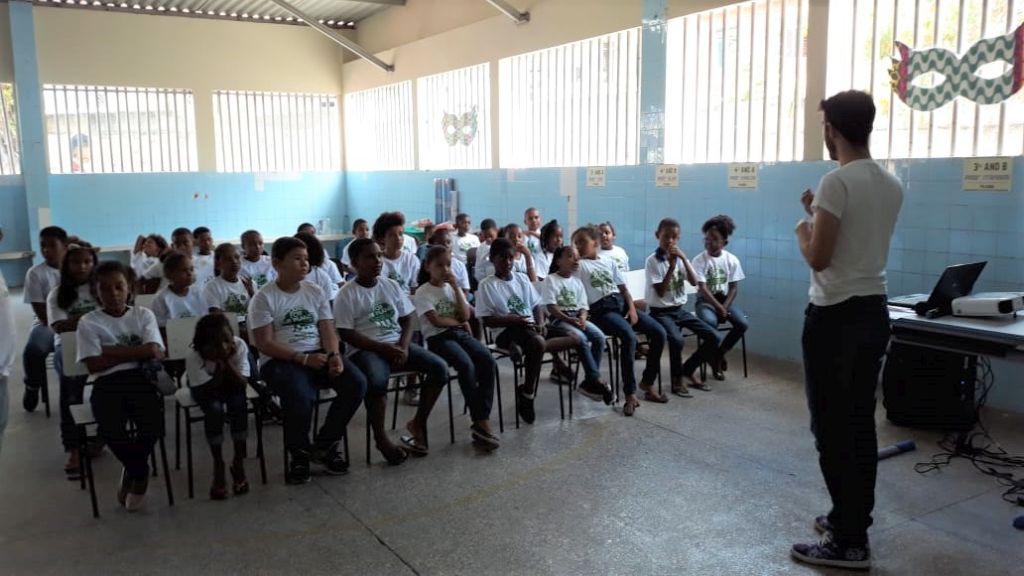
Nota: este webinar será realizado em inglês.
Solving Crisis: Ecosystem-based Solutions to Biodiversity Loss and Links to COVID 19 Pandemic
Friday, May 22nd at 11:30 AM in Eastern Time (USA und Kanada) via Zoom >> Register here.
About the Webinar:
The COVID- 19 crisis has resulted in unprecedented suffering for people across the world including the most vulnerable, among which, children. Apart from its effects on human health, the crisis has also struck us at a time where momentum on biodiversity and nature-based solutions were on the rise. Societal movements, among which youth groups, had mainstreamed biological diversity issues on the agenda of decision-makers across all levels of governance and private sector especially this year. 2020 was supposed to be the year where we ramp ambition and successfully launch into the decade of action until the pandemic struck. While we await for the curve to flatten and these difficult times to pass, we will still have to steer through biodiversity and the consequences of the pandemic.
Youth engagement, reforestation and nature conservation:
Tree sinks play a crucial role towards ensuring biological diversity is sustained as they provide much needed habitat for all nature to coexist and offer tremendous mitigation co-benefits. Therefore, with Plant-for-the-Planet’s Trillion Trees campaign, we are promoting reforestation and contributing towards the reduction of our global climate crises and improving biological diversity (read more about our App with UNEP here) especially as we head to the launch of the UN Decade on Ecosystem Restoration 2021-2030.
Moving into the “super year” it is important to address the nexus of biodiversity, nature, and how engagement of stakeholders can be done in the process. This is especially important when addressing youth engagement – and hence a youth dialogue will be hosted with acting UNCBD Secretary Ms. Elizabeth Merma and David Nabarro, Nature Based Solution Facilitator of the Climate Action Summit and WHO Special Envoy for COVID19, to further mainstream voices of young people on forestation, nature and biodiversity.
This dialogue comes at a time where a lot of linkages are being made between the current pandemic and loss/disruption of biodiversity. According to the US Centre for Disease Control, “75 percent of new or emerging diseases originate in animals, and more than 60 percent of known infectious diseases in people, such as the rabies virus, ringworm and salmonella, are transmitted from animals”. It is then important to address the theme, “Solving Crisis: Nature-based Solution to Current Biodiversity and Links to the Current Pandemic” as we aim to build back better through natural solutions and strengthen the resilience of our communities.

















